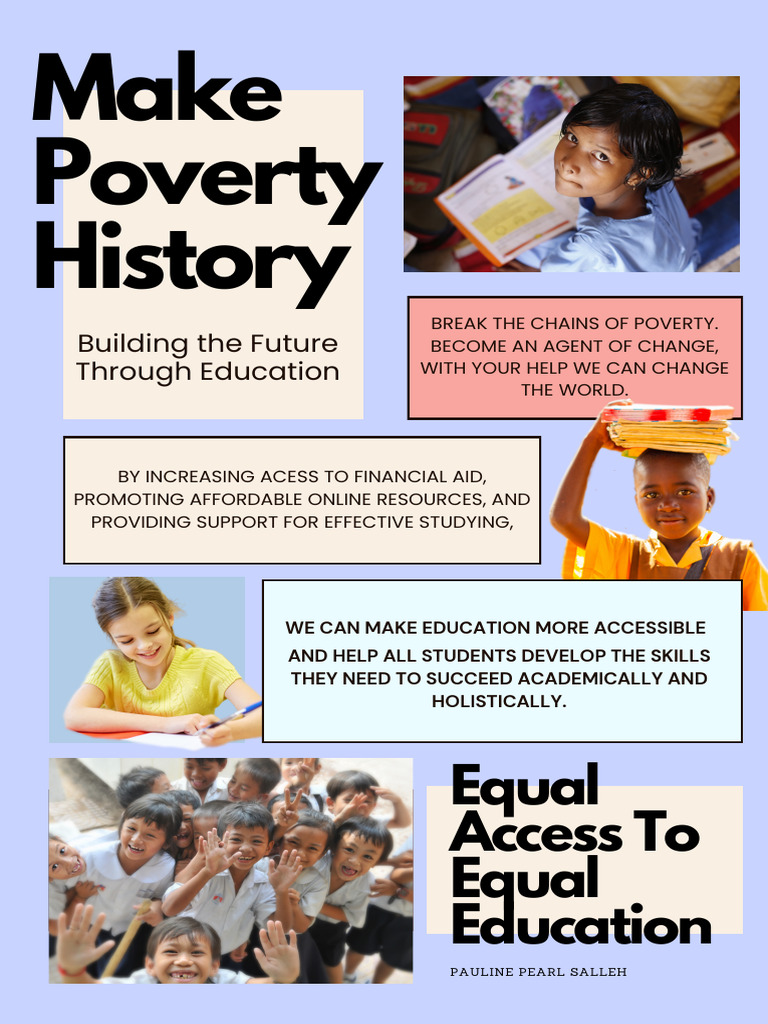The Baha’i teachings encapsulate a profound vision for humanity, one that emphasizes unity and the eradication of poverty. The Baha’i Plan, a strategic framework grounded in the teachings of Baha’u’llah, the founder of the Baha’i Faith, aims to address the multifaceted crisis of poverty. Understanding the intricate tapestry of this plan is essential for those who aspire to contribute positively toward the alleviation of poverty on a global scale.
At the heart of the Baha’i Plan is the belief that the alleviation of poverty is inextricably linked to spiritual and social development. Baha’is posit that material poverty cannot be eradicated without concurrently addressing the spiritual impoverishment that afflicts humanity. This holistic approach fosters an interconnected understanding of individual and communal responsibility. The Baha’i teachings encourage individuals to seek personal transformation while simultaneously contributing to the welfare of the larger society.
One major tenet of the Baha’i Faith is the principle of the oneness of humanity. This tenet advocates for the dismantling of barriers—be they economic, social, or racial—that separate individuals from one another. The pernicious effects of entrenched poverty will inevitably continue unless we cultivate a mindset that perceives individuals through the lens of shared humanity, thereby promoting empathy, solidarity, and ultimately a comprehensive strategy for social betterment.
Furthermore, the principle of equity is paramount in the Baha’i Plan. The teachings illustrate that justice is not merely a lofty ideal but a practical criterion for assessing social systems. Inequities in wealth distribution serve as one of the primary drivers of poverty, fostering a cycle that ensnares generations. The Baha’i teachings advocate for a socio-economic model that curtails these disparities, emphasizing equitable access to resources, opportunities, and education. In practice, this may manifest through initiatives aimed at empowering disenfranchised communities, fostering vocational training, and ensuring that economic policies reflect the needs of the broader populace rather than a select few.
Education is another cornerstone of the Baha’i Plan—a transformative tool for breaking the cycle of poverty. Baha’is believe that education must be universally accessible and culturally relevant, enabling individuals from all backgrounds to develop their capacities and contribute to society. The emphasis on moral and spiritual education alongside intellectual learning reinforces the idea that empowerment should encompass both material and non-material aspects of life. When individuals are equipped with both skills and ethical frameworks, they are better positioned to improve their circumstances and uplift their communities.
Another vital dimension of the Baha’i Plan is the concept of collaboration. The Baha’i teachings stress the importance of cooperative engagement across sectors—government, private enterprises, and civil society—united in the common goal of poverty eradication. Initiatives that rely on intersectoral partnerships stand a much greater chance of fostering sustainable solutions than isolated efforts. Inclusive dialogues that invite diverse perspectives allow communities to formulate strategies that are contextually appropriate and embody the realities of those affected by poverty. This collaboration fosters a sense of ownership among community members, catalyzing grassroots initiatives that are organically rooted in local knowledge and culture.
Moreover, integral to the Baha’i Plan is a focus on sustainable development. The interconnected crises of poverty, environmental degradation, and social injustice necessitate solutions that are not merely reactionary, but proactive and sustainable. Environmental stewardship is seen as a fundamental responsibility; thus, any plan to alleviate poverty should also incorporate ecological considerations. Renewable energy sources, sustainable agriculture, and conservation efforts can not only address poverty but also foster a symbiotic relationship with the environment, ensuring that future generations inherit a world capable of sustaining itself.
The significance of community-building cannot be overstated within the Baha’i framework. The Baha’i teachings encourage the formation of vibrant, cooperative communities that extend beyond local geographical boundaries. International solidarity movements rooted in the Baha’i ethos can effectively mobilize resources and awareness on a global level. Such efforts may foster not only the sharing of physical goods but also of intellectual and spiritual assets, enriching the global community and enhancing our collective capacity to address issues of poverty.
Ultimately, the success of the Baha’i Plan hinges on the collective will of humanity to unite for a common cause. The eradication of poverty requires not just strategic frameworks, but a profound commitment to foster compassion and a genuine concern for the well-being of others. In fostering an environment of goodwill and service, individuals can create a momentum that transforms communities, forging a path toward a world where poverty is relegated to history.
In conclusion, the Baha’i Plan offers a comprehensive approach to making poverty history that interlaces spiritual, social, and practical dimensions. By embracing the teachings of unity, equity, education, collaboration, sustainability, and community-building, humanity stands poised to confront the challenges of poverty with vigor and foresight. Such an endeavor is not merely a venture for the betterment of a few, but a collective journey towards the flourishing of all. It calls for every individual to participate in creating an equitable and just world.
